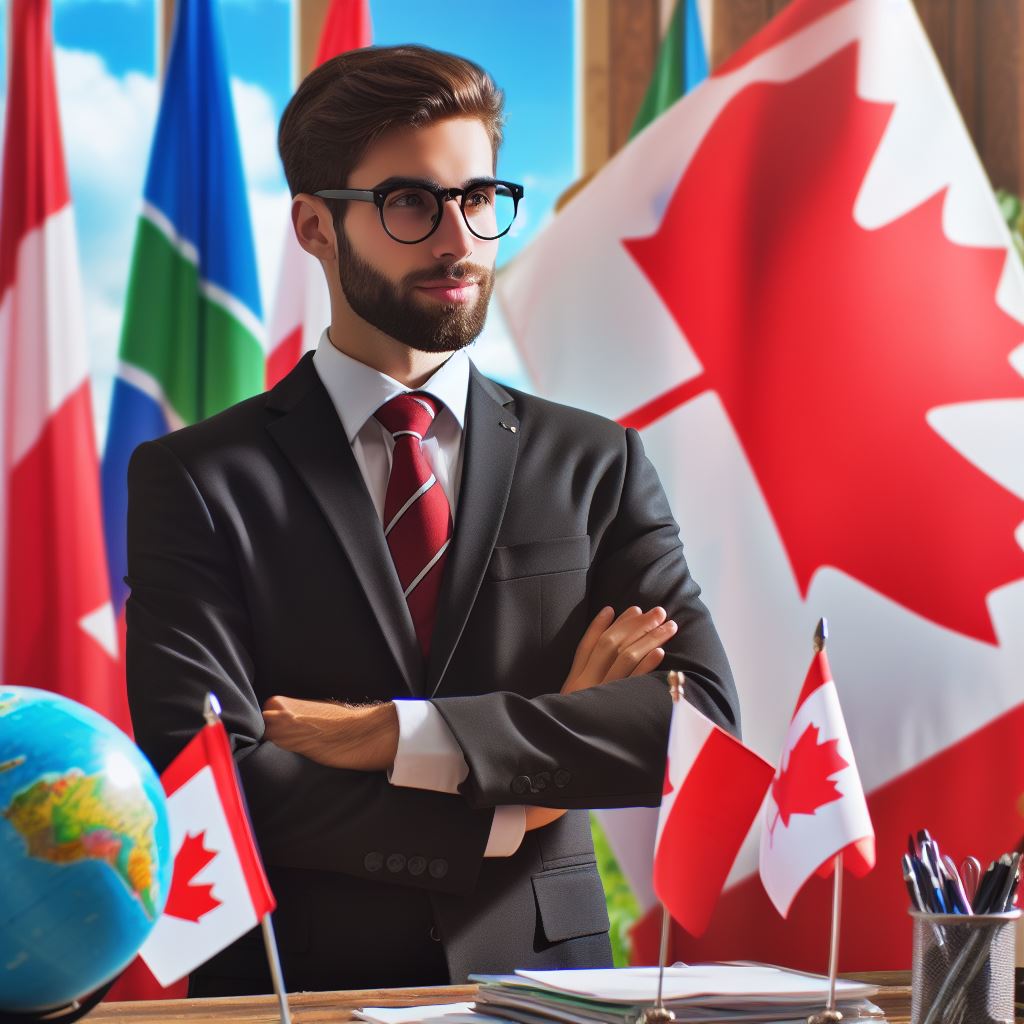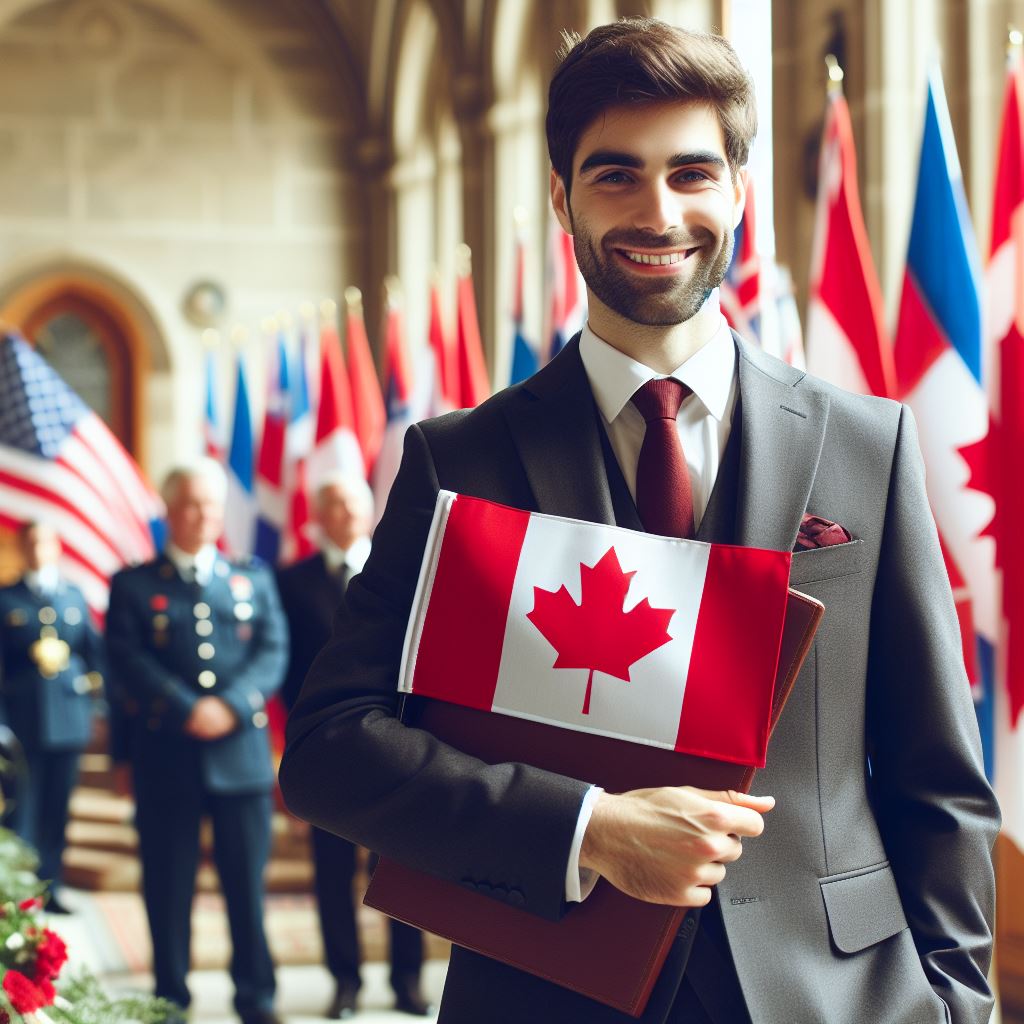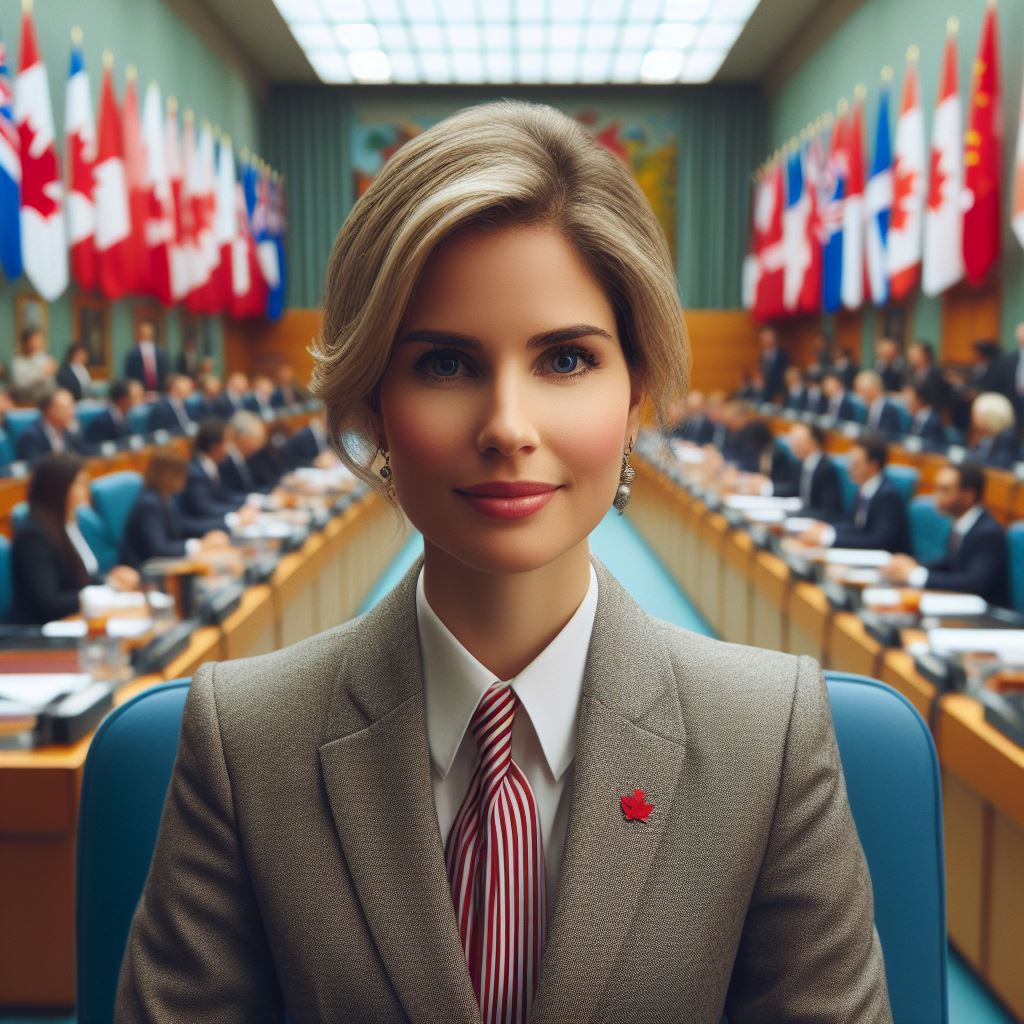Introduction
Diplomacy training is crucial for individuals seeking to navigate the complex world of international relations.
Understanding what this training involves is essential for success in diplomacy.
In this blog section, we will explore the intricacies of diplomacy training, shedding light on its significance and offering an engaging perspective for readers.
Diplomacy, the art and science of conducting international relations, stands as the linchpin in fostering cooperation, mitigating conflicts, and shaping the contours of the global landscape.
At its core, diplomacy is a multifaceted discipline requiring adept individuals who can navigate the complexities of international affairs with finesse and tact.
Diplomacy training, a cornerstone in the preparation of individuals for diplomatic roles, is a comprehensive process that spans a diverse array of skills and knowledge domains.
From mastering the intricacies of international law and negotiation strategies to developing cultural sensitivity and linguistic proficiency, diplomats undergo rigorous training to equip themselves for the dynamic and often unpredictable world of global diplomacy.
This training, provided by diplomatic academies and governmental institutions, not only hones the practical skills essential for effective diplomatic engagement but also cultivates a deep understanding of the historical, political, and cultural nuances that underpin diplomatic interactions.
In this intricate dance of statesmanship, diplomats emerge as crucial architects of peace, working diligently to build bridges, resolve conflicts, and champion the interests of their nations on the international stage.
This exploration delves into the rich tapestry of elements that comprise diplomacy training, shedding light on the multifaceted preparations that diplomats undertake to navigate the intricate web of global relations.
So, if you’ve ever wondered about the inner workings of diplomatic skills, this section is for you!
Definition of diplomacy training
The concept of diplomacy training
In the field of international relations and diplomacy, training plays a crucial role in shaping individuals for successful careers.
Diplomacy training refers to the process of acquiring the necessary skills, knowledge, and expertise to excel in this dynamic field.
Whether one aspires to become a diplomat, foreign service officer, or work in international organizations, diplomacy training is an essential foundation.
So, what does diplomacy training involve?
At its core, it emphasizes the development of diplomatic skills, negotiation techniques, and a deep understanding of international politics and relations.
Through a combination of theoretical study, practical exercises, and real-world simulations, individuals are prepared to navigate the complexities of the global stage.
One of the key aspects of diplomacy training is cultivating effective communication skills.
Diplomats are the intermediaries between nations, and their ability to articulate ideas clearly and diplomatically is of paramount importance.
Training focuses on enhancing public speaking, negotiation, and persuasion skills to ensure effective representation.
Furthermore, diplomacy training also recognizes the significance of cultural intelligence and cross-cultural understanding.
In a diverse and interconnected world, diplomats must be adept at adapting to different customs, traditions, and perspectives.
Training provides opportunities to learn about various cultures, languages, and traditions, fostering empathy and facilitating successful intercultural interactions.
The skills and knowledge that diplomacy training aims to develop
In addition to communication and cultural intelligence, diplomacy training aims to develop analytical and critical thinking abilities.
Diplomats must be able to analyze complex situations, identify interests, and devise strategies to promote their country’s objectives effectively.
Unlock Your Career Potential
Visualize a clear path to success with our tailored Career Consulting service. Personalized insights in just 1-3 days.
Get StartedTraining provides students with a comprehensive understanding of geopolitical issues, international law, and global governance, enabling them to make informed and strategic decisions.
Moreover, diplomacy training equips individuals with the skills necessary to build and maintain relationships.
Diplomats are required to establish networks, forge alliances, and resolve conflicts.
Training emphasizes the art of negotiation, conflict resolution, and building trust – all essential components of successful diplomacy.
Additionally, diplomacy training exposes individuals to practical scenarios and simulations to test their learning in a real-world context.
It allows them to apply theoretical knowledge to address pressing global issues, such as climate change, security threats, and human rights violations.
These simulations enhance their decision-making abilities, problem-solving skills, and crisis management capacities – all vital skills for a career in diplomacy.
Finally, diplomacy training fosters an understanding of diplomatic etiquette and protocol.
Diplomats often find themselves in formal settings, engaging with high-ranking officials and dignitaries.
Training educates individuals on the appropriate behavior, customs, and practices required in diplomatic circles, ensuring they can represent their country with grace and professionalism.
In short, diplomacy training is a multifaceted process that equips individuals with the necessary skills, knowledge, and expertise to excel in international relations and diplomacy.
Through effective communication, cultural intelligence, critical thinking, relationship-building, practical simulations, and understanding diplomatic protocol, individuals are prepared for the challenges and responsibilities that come with a career in diplomacy.
Read: Top Challenges Faced by Modern Diplomats
Objectives of Diplomacy Training
The main goals and objectives of diplomacy training programs
Diplomacy training programs have specific goals and objectives that drive their curriculums and activities.
These programs aim to:
Enhance Interpersonal Communication Skills
Diplomacy training seeks to improve the ability of individuals to effectively communicate and interact with others.
This includes learning to articulate ideas clearly, listening actively, and adapting communication styles to different cultural contexts.
Develop Negotiation Skills
Diplomacy training emphasizes the development of negotiation skills to enable participants to find common ground and reach agreements.
Participants learn strategies such as active listening, problem-solving, and interest-based negotiation techniques.
Improve Problem-Solving Abilities
Diplomacy training aims to enhance problem-solving skills by teaching individuals to think critically, analyze complex situations, and identify creative solutions.
This includes cultivating skills like brainstorming, evaluating options, and making informed decisions.
Cultivate Cultural Awareness
In today’s interconnected world, awareness and sensitivity towards different cultures and traditions are vital for effective diplomacy.
Diplomacy training programs emphasize the importance of understanding cultural differences, norms, and customs to establish meaningful relationships and avoid misunderstandings.
Promote Multilateral Cooperation
Diplomacy training recognizes the importance of collaboration and cooperation among multiple stakeholders, including individuals, organizations, and nations.
Participants learn how to build networks, foster partnerships, and engage in multilateral discussions to address global challenges collectively.
Encourage Diplomatic Etiquette
Etiquette and protocol play a crucial role in diplomacy. Diplomacy training programs teach participants the appropriate behaviors, customs, and practices required in diplomatic contexts.
This includes understanding diplomatic ceremonies, gift-giving traditions, and formalities when interacting with foreign dignitaries.
Develop Conflict Resolution Skills
Diplomacy training equips individuals with the skills to de-escalate conflicts and resolve disputes peacefully.
Participants learn techniques such as mediation, facilitation, and dialogue to foster understanding and find mutually acceptable outcomes.
Build Leadership Qualities
Diplomacy training programs aim to groom individuals to become effective leaders in diplomatic endeavors.
Participants are provided with opportunities to develop leadership skills like decision-making, strategic thinking, and public speaking to represent their countries or organizations.
Foster Global Mindset
Diplomacy training encourages individuals to adopt a global perspective and understand the interconnectedness of global issues.
This involves developing an awareness of international relations, global challenges, and the impact of diplomatic efforts on global peace and development.
In fact, diplomacy training programs have diverse objectives, all aimed at equipping individuals with the necessary skills and knowledge to engage in effective and fruitful diplomatic undertakings.
By enhancing communication, negotiation, problem-solving, and cultural sensitivity skills, these programs contribute to building a future of peaceful and constructive international relations.
Read: Canadian Diplomats: Skills and Qualifications
Key elements of diplomacy training
Diplomacy training encompasses several key elements that are essential for diplomats to master.
These elements include language and communication skills, cultural competency, international law and politics, negotiation and conflict resolution, and diplomatic protocol and etiquette.
Language and communication skills
Effective communication is at the heart of diplomacy. Diplomats must possess strong language skills and be able to communicate effectively in multiple languages.
Multilingualism is particularly valued, as it allows diplomats to engage with a wider range of individuals and cultures.
To enhance language and communication skills, a variety of training programs are available.
These programs provide diplomats with resources and opportunities to improve their language proficiency and overall communication abilities.
Cultural competency
Diplomats operate in a diverse global landscape and must show understanding and respect for different cultures and customs.
Cultural competency is crucial for effective diplomatic engagement. To develop cultural competency, diplomats can undergo cross-cultural training programs.
These programs aim to educate diplomats about the intricacies of various cultures, enabling them to navigate cultural differences with sensitivity and adaptability.
International law and politics
A solid understanding of international law and politics is fundamental for diplomats.
They need to comprehend the legal frameworks and political dynamics that shape international relations.
Diplomacy training covers a wide array of topics related to international law and politics, providing diplomats with the necessary knowledge to navigate complex international issues effectively.
Negotiation and conflict resolution
Diplomacy often involves negotiation and resolving conflicts between parties.
Diplomacy training places a strong emphasis on developing negotiation and conflict resolution skills.
Diplomats are provided with training activities and simulations to practice and enhance their ability to negotiate effectively and resolve conflicts peacefully.
Diplomatic protocol and etiquette
Diplomatic protocol and etiquette are critical in maintaining diplomatic relations and fostering mutual respect between nations.
Diplomats must adhere to established protocols and demonstrate appropriate etiquette in their interactions.
Diplomacy training programs offer guidance on diplomatic protocol and etiquette, ensuring that diplomats are well-versed in the proper norms and behaviors expected in international relations.
In essence, diplomacy trainings encompasses language and communication skills, cultural competency, international law and politics, negotiation and conflict resolution, and diplomatic protocol and etiquette.
These elements are vital for diplomats to successfully navigate the complex world of international relations and effectively represent their nations.
Read: The Role of Diplomats in Global Politics

Benefits of diplomacy training
When considering a career in diplomacy, individuals often seek out opportunities for diplomacy training.
These training programs offer numerous advantages for those pursuing diplomatic careers.
Not only do they enhance career prospects and opportunities, but they also provide individuals with invaluable transferable skills that can be applied in various fields.
Exploring the advantages of diplomacy training
- Diplomacy trainings equips individuals with in-depth knowledge and understanding of international relations.
- It provides a comprehensive understanding of diplomatic protocols, negotiation techniques, and conflict resolution strategies.
- Training programs offer practical experiences that simulate real-world diplomatic scenarios, enhancing individuals’ diplomatic skills.
- Networking opportunities during diplomacy trainings can facilitate connections within the diplomatic community.
- Diplomacy trainings programs often involve interaction with experienced diplomats, gaining valuable insights and mentorship.
- Improving language skills is a significant advantage of diplomacy trainings, as multilingualism is valued in diplomatic careers.
Enhancing career prospects and opportunities
- Diplomatic training provides individuals with a competitive edge in the job market, as employers value such specialized skills.
- Completion of diplomacy training programs demonstrates commitment and dedication to the field, making candidates more attractive to potential employers.
- Individuals who have undergone diplomacy trainings are more likely to obtain internships or entry-level positions within diplomatic organizations.
- Such training also prepares individuals for diplomatic exams, interviews, and assessments, increasing the likelihood of success.
- By gaining a deeper understanding of international relations, diplomacy trainings enhances individuals’ ability to navigate complex political landscapes.
Transferable skills acquired through diplomacy training
- Communication skills: Diplomacy training hones individuals’ abilities to communicate effectively, both verbally and non-verbally, in various contexts.
- Negotiation skills: Diplomats must negotiate to reach agreements, and training equips individuals with the strategies and techniques needed for successful negotiations.
- Cultural sensitivity: Diplomacy training emphasizes cross-cultural understanding, fostering individuals’ ability to navigate diverse cultural environments.
- Analytical skills: Diplomats must analyze complex situations, and training develops individuals’ capacity to think critically and make informed decisions.
- Problem-solving skills: Diplomacy trainings enhances individuals’ problem-solving abilities, enabling them to address challenges in diplomatic settings effectively.
- Leadership skills: Diplomats often find themselves in leadership roles, and training provides individuals with the necessary skills to lead in challenging situations.
In addition to diplomatic careers, the skills acquired through diplomacy trainings can be applied in various other fields.
These transferable skills make diplomacy trainings valuable even for individuals not pursuing a career specifically in diplomacy.
Overall, diplomacy trainings offers numerous benefits. It equips individuals with the knowledge, skills, and experiences necessary for a successful career in diplomacy.
Moreover, it enhances career prospects and provides individuals with transferable skills that can be applied in diverse professional contexts.
Whether one aims to become a diplomat or seeks to develop valuable skills for other fields, diplomacy training is undoubtedly a worthwhile endeavor.
Read: How to Become a Diplomat in Canada: A Guide
How to Pursue Diplomacy Training
Information on the different options for acquiring diplomacy training
In order to pursue diplomacy trainings, there are various options available to individuals interested in this field. Here are some ways to acquire the necessary skills and knowledge:
- Academic Programs: One option is to enroll in academic programs that offer courses on diplomacy and international relations.
- Online Courses: Another option is to explore the availability of online courses specifically designed for diplomacy trainings.
- Workshops: Attending workshops and seminars conducted by experienced diplomats can provide valuable insights and practical training.
Resources and organizations that offer diplomacy training opportunities
Aside from the above options, it is also important to consider additional resources and organizations that offer diplomacy training opportunities. Some suggestions include:
- United Nations (UN): The UN offers various training programs and workshops that focus on diplomacy and international cooperation.
- Foreign Service Institutes: Many countries have their own foreign service institutes that provide specialized training for individuals aspiring to become diplomats.
- Diplomatic Academies: Several countries have established diplomatic academies that offer comprehensive training in diplomacy and related areas.
- Non-Governmental Organizations (NGOs): Some NGOs, such as the International Crisis Group, provide training programs on conflict resolution and diplomatic negotiation.
- Research Institutes: Research institutes like the International Institute for Strategic Studies often organize training programs and conferences for diplomats.
When pursuing diplomacy trainings, it is essential to consider the reputation and credibility of the institution or organization offering the program.
Look for accreditation or recognition from relevant authorities or reputable sources.
Tips individuals interested in diplomacy training should keep in mind
Additionally, individuals interested in diplomacy trainings should also keep in mind the following tips:
- Networking: Building a strong network within the field of diplomacy can offer access to valuable opportunities and information about training programs.
- Foreign Language Proficiency: Developing fluency in one or more foreign languages can greatly enhance one’s chances of success in the field of diplomacy.
- Internships and Volunteer Work: Gaining practical experience through internships or volunteer work with diplomatic missions or international organizations can provide valuable exposure.
- Continuous Learning: Diplomacy is a constantly evolving field, so it is crucial to stay updated with current affairs, global politics, and diplomatic strategies.
In summary, pursuing diplomacy trainings requires careful consideration of available options such as academic programs, online courses, and workshops.
It is also important to utilize resources provided by organizations like the United Nations or foreign service institutes.
Building a strong network, developing language skills, gaining practical experience, and staying informed are key to a successful career in diplomacy.
Conclusion
In this blog post, we explored the world of diplomacy trainings and what it involves.
Diplomacy trainings are essential for aspiring diplomats as it equips them with the necessary skills to navigate complex international relations.
Throughout the post, we discussed the importance of diplomacy trainings in developing effective communication skills, cultural understanding, negotiation techniques, and conflict resolution abilities.
These skills are crucial for diplomats in representing their countries and building strong diplomatic relationships.
To conclude, diplomacy trainings are not just a mere formality but a vital step towards becoming a successful diplomat.
It provides individuals with the knowledge and expertise needed to handle delicate diplomatic situations with tact and diplomacy.
We encourage our readers to explore various diplomacy trainings option available to them.
Whether through academic programs, workshops, or online courses, there are numerous opportunities to enhance their skills in the field of diplomacy.
By investing in diplomacy trainings, individuals can empower themselves to make a positive impact on global affairs and contribute to peaceful resolutions of conflicts.
So, take the initiative, embark on this journey, and become a skilled diplomat who can shape a better world through effective diplomacy.




